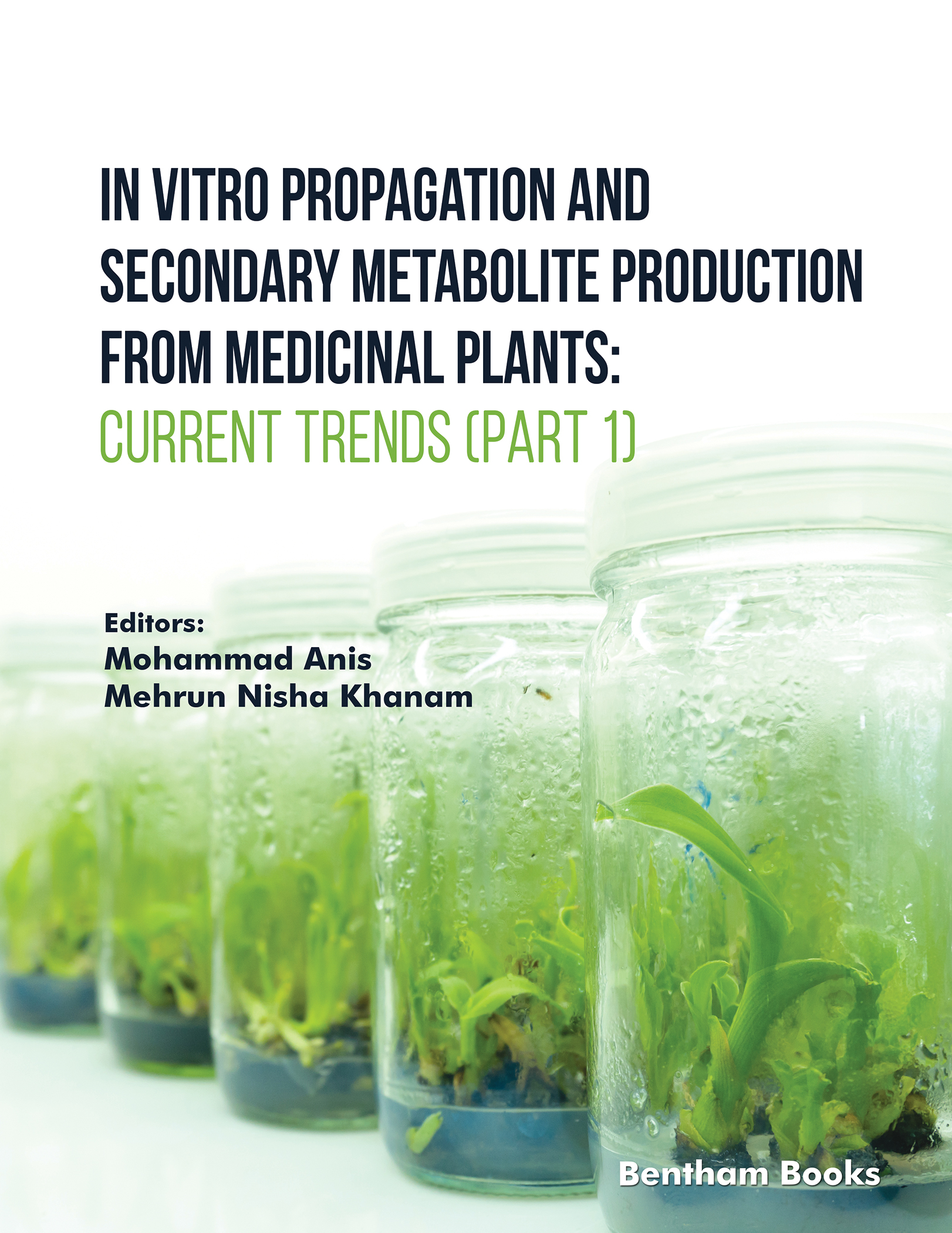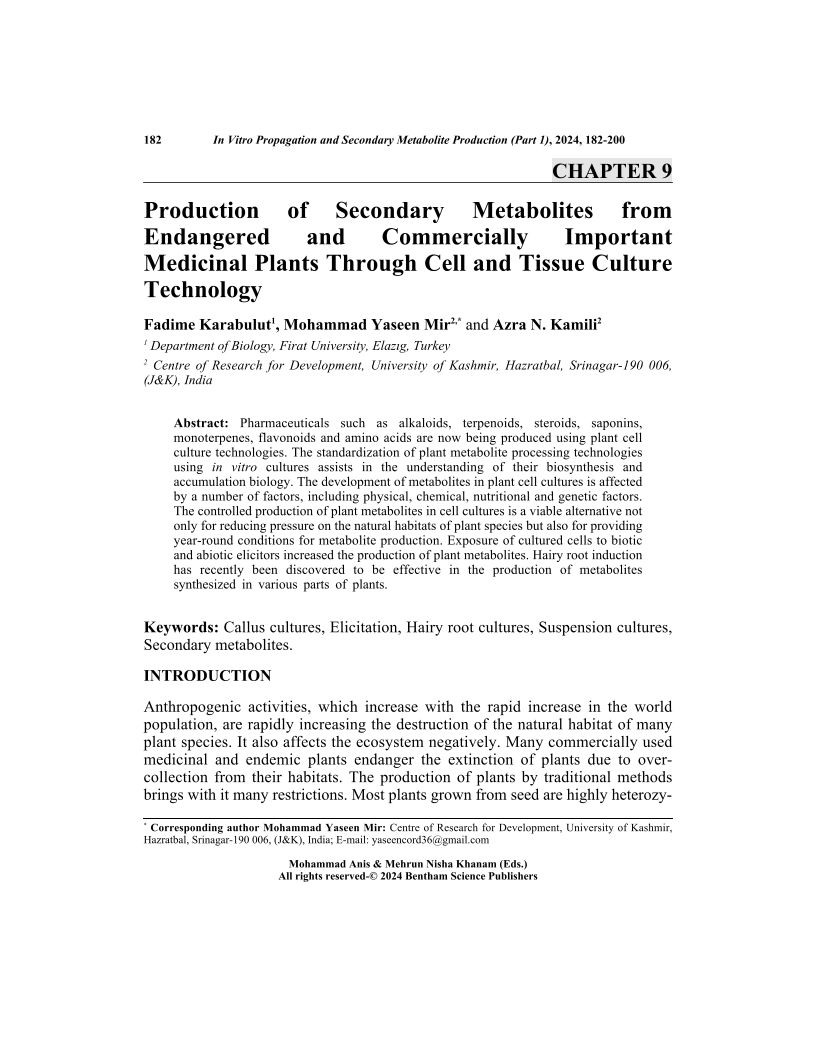Production of Secondary Metabolites from Endangered and Commercially Important Medicinal Plants Through Cell and Tissue Culture Technology

- Authors: Fadime Karabulut1, Mohammad Yaseen Mir2, Azra N. Kamili3
-
View Affiliations Hide Affiliations1 Department of Biology, Firat University, Elazg, India 2 Centre of Research for Development, University of Kashmir, Hazratbal, Srinagar 190 006, (J&K), India 3 Centre of Research for Development, University of Kashmir, Hazratbal, Srinagar-190 006, (J&K), India
- Source: In Vitro Propagation and Secondary Metabolite Production from Medicinal Plants: Current Trends (Part 1) , pp 182-200
- Publication Date: February 2024
- Language: English
Production of Secondary Metabolites from Endangered and Commercially Important Medicinal Plants Through Cell and Tissue Culture Technology, Page 1 of 1
< Previous page | Next page > /docserver/preview/fulltext/9789815165227/chapter-9-1.gif
Pharmaceuticals such as alkaloids, terpenoids, steroids, saponins, monoterpenes, flavonoids and amino acids are now being produced using plant cell culture technologies. The standardization of plant metabolite processing technologies using in vitro cultures assists in the understanding of their biosynthesis and accumulation biology. The development of metabolites in plant cell cultures is affected by a number of factors, including physical, chemical, nutritional and genetic factors. The controlled production of plant metabolites in cell cultures is a viable alternative not only for reducing pressure on the natural habitats of plant species but also for providing year-round conditions for metabolite production. Exposure of cultured cells to biotic and abiotic elicitors increased the production of plant metabolites. Hairy root induction has recently been discovered to be effective in the production of metabolites synthesized in various parts of plants.<br>
-
From This Site
/content/books/9789815165227.chapter-9dcterms_subject,pub_keyword-contentType:Journal -contentType:Figure -contentType:Table -contentType:SupplementaryData105

